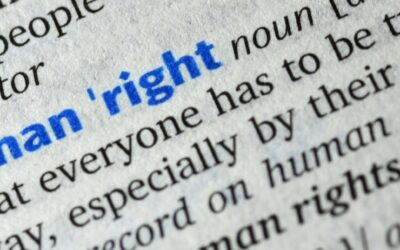In recent years, we have seen a number of cases where individuals have expressed views that either other employees, clients or the employer itself has found to be offensive or damaging to its reputation. Failure by an employer to deal appropriately with beliefs expressed can lead to bullying and harassment claims from other employees, complaints from service users, bad publicity and loss of business. Invicta Law’s, Mark Radford, explores the issue.
In what way are beliefs protected?
Part 5 of the Equality Act 2010 protects a wide range of individuals within the field of employment, occupation and vocational training against religion or belief discrimination, harassment and victimisation. It protects both job applicants and those “in employment” under a contract of employment, a contract of apprenticeship or a contract personally to do work.
This encompasses employees, workers and a wider category of self-employed individuals, provided that they are “in employment” and that their contract obliges them to perform the work personally.
What is a philosophical belief? In the case of Grainger plc and others v Nicholson [2010] IRLR 4, Nicholson claimed he was unfairly dismissed due to his strong belief in climate change.
The Employment Appeal Tribunal (EAT) held that a belief in climate change can be considered a philosophical belief under the then in force Employment Equality (Religion or Belief) Regulations 2003, and set down the following test for what constitutes a “philosophical belief”:
1. The belief must be genuinely held.
2. It must be a belief, not an opinion or viewpoint based on the present state of information available.
3. It must be a belief as to a weighty and substantial aspect of human life and behaviour.
4. It must attain a certain level of cogency, seriousness, cohesion and importance.
5. It must be worthy of respect in a democratic society, not be incompatible with human dignity and not conflict with the fundamental rights of others.
6. The belief must “have a similar status or cogency to a religious belief”. However, it need not “allude to a fully-fledged system of thought”; it does not need to be an “-ism”.
7. It need not be shared by others.
8. While “support of a political party” does not of itself amount to a philosophical belief, a belief in a political philosophy or doctrine, such as Socialism, Marxism or free-market Capitalism, might qualify.
9. A philosophical belief may be based on science. For example, Darwinism.
Whilst all cases will be decided upon their facts, here are some examples of beliefs that have been found to be capable of being philosophical beliefs:
1. Belief in the sanctity of life, extending to a fervent anti-fox hunting and anti-hare coursing belief.
2. Belief in the “higher purpose” of public service broadcasting.
3. Belief in ethical veganism.
4. Belief in participatory democracy.
5. Belief that political Zionism should be opposed, but not the belief that an allegedly Zionist student’s union group should not be allowed to meet on Campus.
6. Beliefs in independence from the EU and in Scottish independence.
7. Belief that sex/gender is fixed at birth.
8. Belief that critical race theory is misguided.
9. A belief in a vulnerable person’s right to know the sex of the person they are dealing with, where that is relevant to the work-related interaction.
Whilst all cases will be decided upon their own facts, here are some examples of beliefs that have been found not to be philosophical beliefs:
1. Belief in the racial supremacy of white people.
2. Belief In English Nationalism.
3. Belief in oppressive Marxism.
4. Belief in vegetarianism.
5. Belief that Jews are God’s chosen people.
6. A non-religious belief that homosexuality is a sin (a sincerely held religious belief may be).
7. A belief that the Holocaust did not happen.
8. Support for a particular football club.
9. A belief in one’s entitlement to copyright the work one does at work.
Factors to consider in deciding whether the expression of a belief makes it a protected belief:
1. Is the belief serious in nature?
2. Does the belief as expressed show a train of structured thought and understanding by the person making it or is it just a comment or repeating what someone else has said?
3. Is there evidence that the person has given the belief the depth of thought or attention to detail to promote it from an opinion to a belief?
4. Is the belief genuinely held?
5. Is the belief expressed in a way designed to cause mischief or to offend or is it expressed as part of a legitimate debate?
6. Is the belief expressed in an inappropriate forum? If so, this may indicate it is not a genuinely held belief.
Protecting the rights of others
The Equality Act 2010 protects employees and workers from discrimination, victimisation and harassment on the grounds of race, sex, sexual orientation, gender reassignment, age, marriage and civil partnership, religion or belief; and disability.
Failure by an employer to take action to protect the dignity of those at work with protected characteristics can lead to constructive dismissal and discrimination claims. Where unlawful discrimination is proven, and if it is of a very serious nature, there is no cap to the amount of money an employment tribunal can award.
The Employer’s Legitimate Interest
An Employer has a legitimate interest in protecting its business, customer base and reputation, hence why it has policies to protect the business from staff misconduct.
Disciplinary and social media usage policies and training can be used to guide employees and workers as to what constitutes acceptable and unacceptable conduct and the consequences of unacceptable conduct.
Resolution procedures can be used to enable workplace grievances to be reported and dealt with.
External complaints procedures can be used by complainants outside the organisation.
Higgs v Farmor’s School 2023 There is guidance for employers in the EAT decision in Higgs v Farmor’s School (2023). Here, Higgs, a teacher was dismissed for posts she made on Facebook criticising the nature of sex education in schools and, in particular, the teaching of ‘gender fluidity’. The EAT found that the original Employment Tribunal (which had rejected Higgs’ claim) had erred by not properly considering the connection between Higgs’ Facebook posts and her protected religious beliefs.
The EAT went on to set out the following guidelines employers should consider when dealing with complaints regarding a belief which may be a protected belief:
1. Is the belief protected?
2. Is there a nexus between the employee’s conduct and the belief?
3. Were the employer’s rules clear enough so the employee understood what conduct was allowed and the consequences of breaching the rules?
4. What was the employer’s reason or objective for interfering with the belief or its expression?
5. Was the employer’s objective sufficiently important to justify interference with a protected right?
6. Could a less intrusive measure have been used to achieve the objective (e.g. guidance as opposed to discipline or a final written warning as opposed to dismissal?
7. Was the objective, when balanced against the severity of the overall outcome, balanced and proportionate?
What can an employer do when they receive a complaint?
Just because someone has expressed a philosophical belief, it doesn’t mean there are no potential disciplinary or other consequences. However, what is clear from the case law is that an employer needs to act proportionately and do as much as possible not to subject a person to a detriment for expressing a belief. This is because under the Human Rights’ Law, freedom of expression of a belief is also protected.
So what can the employer do and consider?
1. Collect and consider evidence about what has been said and where.
2. Consider whether the belief expressed is a religious or philosophical belief at all.
3. Consider whether it is expressed as part of a legitimate national or local debate.
4. Was the employee identified as being an employee of the employer when expressing the belief?
5. Was the expression appropriate given the forum it was expressed upon?
6. Is there evidence that the employee who expressed that belief genuinely held that belief?
7. Evaluate whether the expression of belief was objectively offensive in the circumstances.
8. Is the expression or the way the belief was expressed in breach of the employee’s policies and procedures, or was it contrary to the training given to the employee?
9. If the employer finds that the expressed belief is not a protected belief, it may fairly discipline the employee in accordance with its procedures.
10. If the employer finds that the expressed belief is a protected belief, it may still subject the employee to its disciplinary procedures if it is in breach of its policies, but case law has made clear that the employer should behave reasonably and proportionately and take the least intrusive route possible to achieve its objective.
Steps the employer could take short of discipline or dismissal
1. Explain to the employee why others are concerned about their expression of their belief and ask them to stop sharing and publicising their belief whilst at work or to modify their behaviour.
2. Advise the employee about what expressions are acceptable whilst at work.
3. Provide training.
4. If the belief is being expressed on a social media platform, request that the employee does not identify as being employed by the employer or that the employee makes the account private so it cannot be accessed by colleagues and service users.
5. Rather than moving straight to dismissal, enforce, if necessary, by giving a written warning, if possible.
Disclaimer: This article does not constitute legal advice and is provided for general information purposes only. Published 10 July 2024 and applicable to England only.



